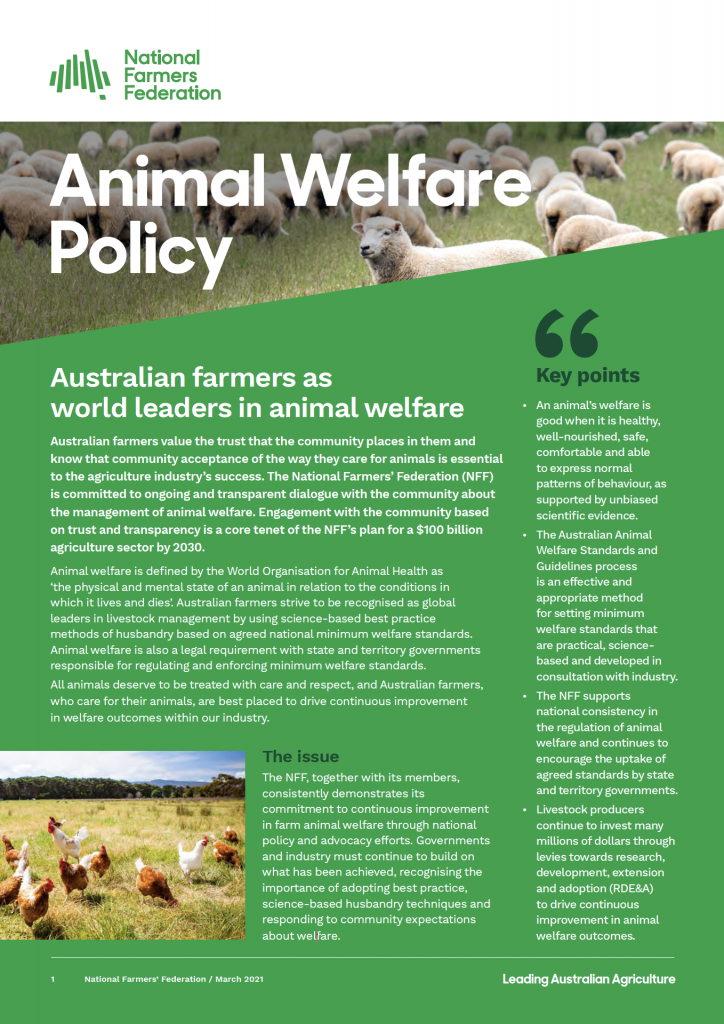Australian farmers value the trust that the community places in them and know that community acceptance of the way they care for animals is essential to the agriculture industry’s success.
The National Farmers’ Federation (NFF) is committed to ongoing and transparent dialogue with the community about the management of animal welfare. Engagement with the community based on trust and transparency is a core tenet of the NFF’s plan for a $100 billion agriculture sector by 2030.
Animal welfare is defined by the World Organisation for Animal Health as ‘the physical and mental state of an animal in relation to the conditions in which it lives and dies’.
Australian farmers strive to be recognised as global leaders in livestock management by using science-based best practice methods of husbandry based on agreed national minimum welfare standards.
Animal welfare is also a legal requirement with state and territory governments responsible for regulating and enforcing minimum welfare standards. All animals deserve to be treated with care and respect, and Australian farmers, who care for their animals, are best placed to drive continuous improvement in welfare outcomes within our industry.
To view the NFF’s animal welfare policy and priorities for industry and government action: click here.
For a full list of recent submissions relating to animal welfare: click here.
To read more about the NFF’s Animal Welfare Policy, click the image below:






Add comment